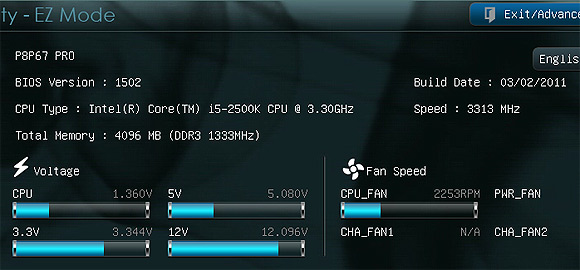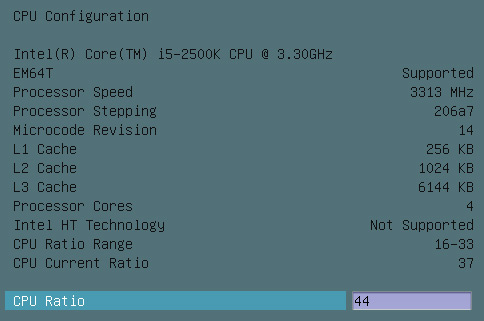 |
| Overclocking Results: |
|
|
Owing
to the greater number of things integrated onto the die of Intel's
'Sandybridge' Core i5 processors, these LGA1155 CPUs don't react well to overclocking
via motherboard BCLK adjustments. Hard core overclockers HAVE done it, but it's far more
effort than it's worth in our opinion.
The ASUS P8P67 Pro motherboard offers
a full range of CPU overclocking controls for those with the time and
determination to push some really high numbers. Voltage controls in
particular, are the speciality of the P8P67 Pro motherboard.
In any case, PCSTATS started off with a default x33
multiplier and pushed the test Intel Core i5 2500K CPU to x46
multiplier without much effort. Usually the Core i5 2500K chip PCSTATS tests
with can handle x47 out of the gate, without voltage tweaking, but as we've
seen with a couple other Intel P67 based motherboards the P8P67 Pro wouldn't go
beyond x46. A maximum overclock of 4.6GHz is very
good.
The ASUS OC Tuner software takes a slightly different
approach to overclocking, so we also gave it a try. OC Tuner overclocked both
Bclk and the CPU multiplier to achieve a more conservative boost in speed.
Where PCSTATS overclocked manually to 4.6GHz, the ASUS OC Tuner software chose
103MHz x (x39 multiplier) for a speed of 4.01GHz.
Inside the UEFI BIOS
The ASUS P8P67 Pro motherboard features a UEFI BIOS. The main
overclocking controls for adjusting the CPU multiplier (and BCLK frequency) are
found in the OC Settings page.

The BIOS has extensive memory control options,
timings can be set down to the individual clocks cycle, per channel.

